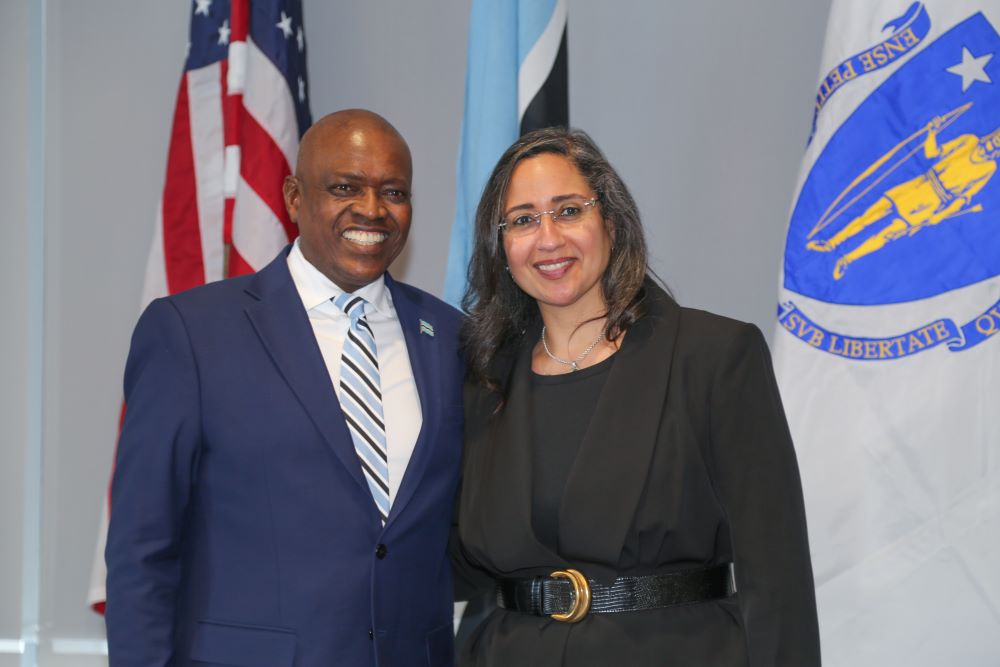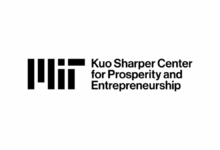
The Legatum Center for Development and Entrepreneurship at the Massachusetts Institute of Technology (MIT) celebrated over 15 years of advancing innovation and entrepreneurship by unveiling its 15-Year Impact Report.
The report was unveiled at the “Innovation in Global Growth Markets: Prosperity Through Entrepreneurship” Conference held recently in Cambridge, Massachusetts.
During the event, the Center also strengthened its commitment to driving innovation across Africa by signing a Memorandum of Understanding (MOU) with the Republic of Botswana.
“The Legatum Center has showcased the transformative power of entrepreneurship in growth markets since its establishment in 2007,” said Executive Director Dina H. Sherif. “As we celebrate over 15 years of driving prosperity across Africa, we’re now committed to deepening our work with a focus on DeepTech innovation as the next frontier for the continent’s future. We’re honored to partner with Botswana in charting a path towards realizing this vision.”
President Dr. Mokgweetsi EK Masisi of Botswana delivered a keynote address at the conference. He underscored the critical role entrepreneurship can play in unlocking prosperity for emerging economies. President Masisi then highlighted how a collaboration with the Legatum Center can foster a culture of innovation and entrepreneurship within Botswana.
“We deeply recognize the vital work undertaken by the Legatum Center for Development and Entrepreneurship,” President Masisi remarked. “Diversifying our economy and transitioning to a knowledge-based one driven by science and innovation is anchored in our Vision 2036 and is one of my government’s top priorities.” He further expressed Botswana’s eagerness for deeper collaboration with the Center and MIT to make this a reality.
Masisi added that for Africa to realize its full potential it would “need a surge of innovation and a wave of entrepreneurs who can translate ideas into scalable solutions”. The Legatum Center’s 15-year impact report highlights and showcases the groundbreaking work of fellows leading the way toward this very goal.
In Kenya, Joyce Kamade, (Foundry Fellow 2023, and Kevin Kung, Student Fellow 2015), co-founded Safi Organics, with the vision to eradicate poverty among rural farmers. To date, Safi Organics has created 600 jobs and impacted over 10,000 poor farmers, increasing their incomes by 50%, while increasing their yields by 30%. Caitlin Dolkart (Legatum Student Fellow 2016), co-founded Flare, which tackles the challenge of emergency medical care in underserved areas by providing people with a centralized platform and network of ambulances, ensuring quicker and safer access to critical services. Today, Flare is the leading provider of emergency services in Kenya, serving 2 million customers with a response time that is ten times faster than before.
Speetar stands out as a Libyan-based AI-enabled telemedicine platform founded by Mohamed Aburawi (Student Fellow ‘21). This innovative platform addresses the critical need for accessible and affordable healthcare in conflict-affected communities, where marginalized and displaced individuals often struggle to access quality medical services. Speetar has already made a significant impact, serving close to 2,000,000 users to date.
In Nigeria, MDaaS Global is bringing modern, tech-enabled healthcare to clinically underserved communities across Africa. This venture currently serves over 260,000 patients and has established 1,300 clinical partners in 25 Nigerian cities.
These fellows are alumni of the Legatum Center’s two fellowship programs. The student fellowship for MIT students includes 69 alumni who have focused on building ventures in Africa—a remarkable 29 of these ventures are still growing today. The Foundry Fellowship made up of 33 advanced-stage entrepreneurs, was launched in 2021 as the first-of-its-kind program for well-established African entrepreneurs who are committed to leading the acceleration and interconnection of Africa’s innovation and entrepreneurship ecosystems. The program includes mentorship, leadership training, and experiential tours of innovation ecosystems to define the next stage in their entrepreneurial and leadership journeys.
Alongside celebrating the incredible impact of the two fellowship programs, the report also recognized the 244 entrepreneurs in Africa who have completed shorter-term Deep Tech boot camps and accelerator programs offered by the Center’s team in collaboration with innovation ecosystem stakeholders, and MIT faculty in Senegal, Rwanda, Uganda, Nigeria, Ghana, Kenya, Tunisia and Egypt.
A major goal of the Center for the Future is to develop its engaged community of entrepreneurs and ecosystem leaders who, together, will create new markets, strengthen ecosystems, and build the economies of the future. “The majority of the world’s growth now comes from what has historically been referred to as the developing world. It is time for us to start recognizing that our time is now. We are not rising. We are here, we are strong, and it is up to us to create the prosperity that we need”, Sherif concluded.
Follow us on Telegram, Twitter, and Facebook, or subscribe to our weekly newsletter to ensure you don’t miss out on any future updates. Send tips to editorial@techtrendsmedia.co.ke




